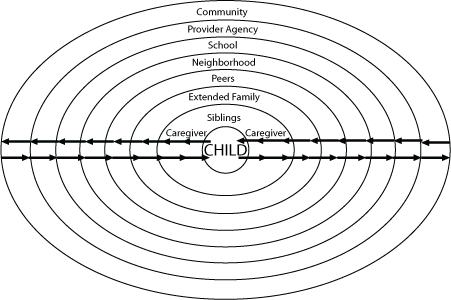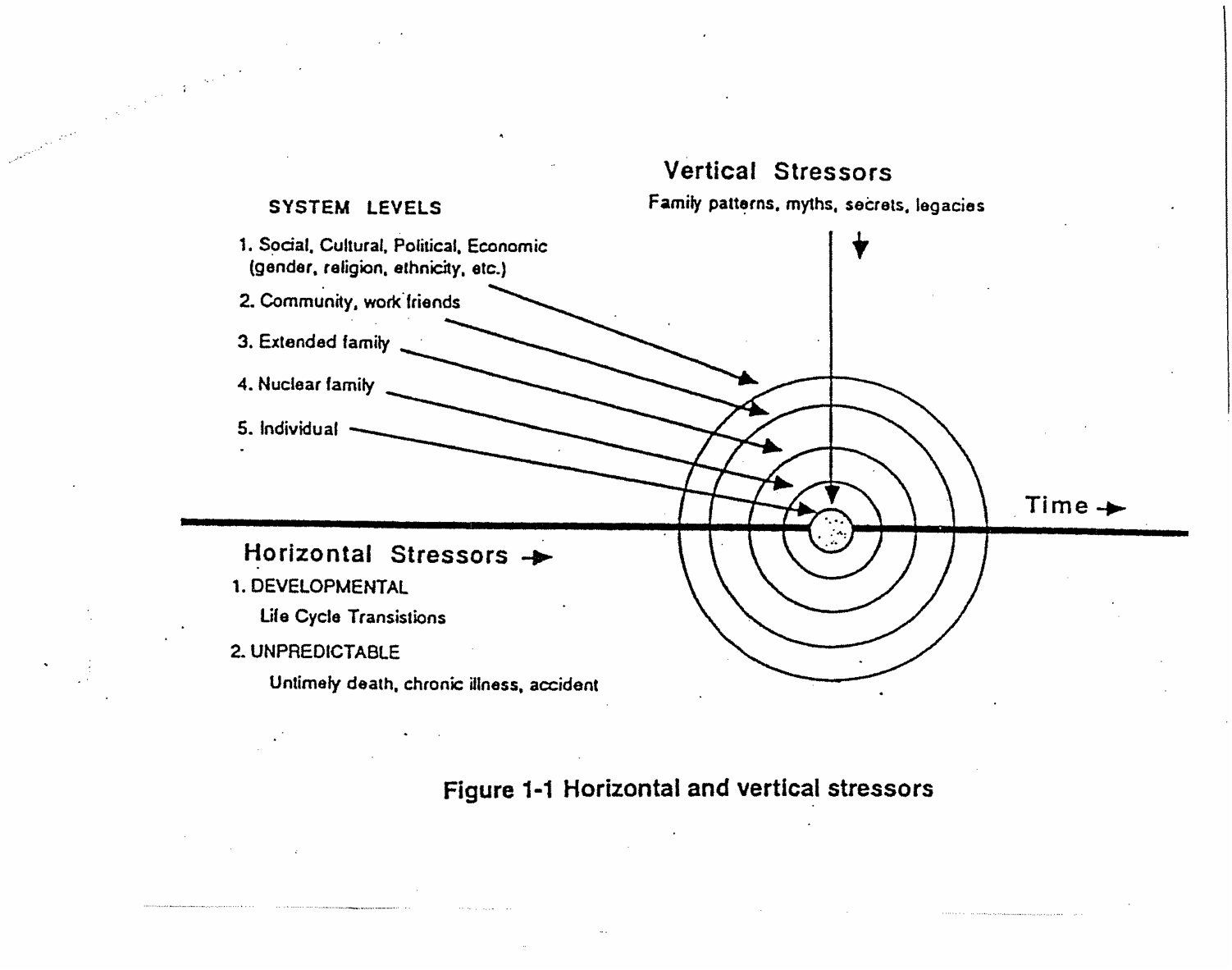Lesson 1: Introduction Part A. A Systems Approach to Human Behavior
Goals
This lesson will introduce the frameworks the course uses which is a systems approach to human behavior and how psychological science may play a role in change.
It will use two examples of such frameworks - one that focuses on systems and human development (Bronfenbrenner's ecological model or as he has renamed it bio ecological model, and then one that focuses on the family as an "organism" and its development over the life course, Carter and McGoldricks's Family Life Cycle Model.
The former comes out of developmental psychology and the latter has roots in social work, a more applied field, but one that over its history has been more "conscious" of the context in which humans live. (see figures below)

Figure 1: Bronfenbrenner's Ecological Model or as he has renamed it Bio Ecological Model
Figures are taken from: Carter, E. A. & McGoldrick, M. (1988). Overview: The changing family life cycle: A framework for family therapy. In E. A. Carter & M. McGoldrick (Eds.), The changing family life cycle (pp. 3-28). New York: Gardner.

Figure 2: Carter and McGoldricks's Family Life Cycle Model